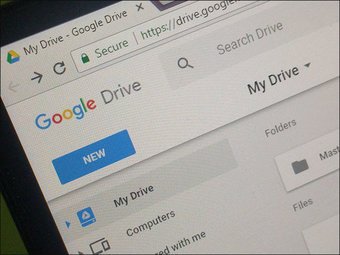SINGAPORE | In a fit of anger after his employment at a meat-producing firm was terminated, Tan Wei Chiang deleted several documents from the company’s Google Drive account.
The company managed to recover most of these documents, which were essential to its production and work processes, except for four of them — including one which contained workers’ overtime records.
The firm ended up deducting the full amount of S$1,500 of his outstanding salary as compensation for his actions.
Tan, 30, was fined S$5,000 in a district court on Tuesday (Dec 7) after pleading guilty to a single charge of unauthorised modification of computer material.
He worked as a production manager at 786 SG from Aug 10 last year, where he was tasked with planning the production schedule, checking on the quality of raw material and finished goods, and ensuring that customers’ requirements were met.
On Jan 4 this year, he tendered his resignation and began serving his 30 days’ notice.
But about a week later, his direct supervisor handed him a termination letter on account of his overall performance and quality of work not meeting the company’s expectations.
He was given a day’s notice and the letter stated that he would receive his final pro-rated salary on Jan 31.
Tan signed and accepted the letter on the same day, before his supervisor told him to hand over all the intellectual property rights, current projects, company email login details and all company-related material in his possession.
While still in the company’s office, Tan used his account to access the Google Drive account, which allows users to store data files on Google’s servers and access them online.
At about 6.30pm, he deleted 20 documents in a few batches. He then permanently deleted 16 of them from the account’s “bin”.
Later that evening, his supervisor realised what had happened. She asked Tan in text messages if the file containing the company’s production records was still on the Google Drive account or whether he had deleted it.
He replied that it was still there and told her to look under a certain folder.
When he did not reply to her question on whether he deleted the file by accident, she contacted the firm’s IT staff who told her that Tan had deleted the documents.
The court heard that because of his actions, the company had to “expend time and effort” in recovering the documents.
It also had to explain to the Singapore Food Agency (SFA) that it no longer had a consolidated report of its compliance with SFA’s requirements, which was required during its factory audit, and had to retrieve these records from SFA.
As for the other documents that could not be recovered, the company had to recreate them from scratch.
Tan told the police on Jan 20 that the documents he deleted belonged to him, but finally confessed about five months later that he knew the documents belonged to the company.
Deputy Public Prosecutor Michelle Tay sought the fine imposed, saying Tan had “offended in a deliberate manner” and showed a lack of remorse by continuing to deny and downplay his actions when he was confronted.
In mitigation, Tan’s lawyer Kalidass Murugaiyan, who asked for a lower fine of S$1,500, said Tan had told him he was “treated very roughly” by the company and that “emotions were at play” when he committed the offence.
District Judge Kamala Ponnampalam noted that it remains unclear if the documents are permanently lost, and it was unclear how much effort and time would be involved in recreating them.
Such actions which were “obviously motivated by feelings… of anger” should not be tolerated, the judge added.
Tan could have been jailed for up to three years or fined up to S$10,000, or punished with both. Repeat offenders can be jailed for up to five years or fined up to S$20,000, or both.









